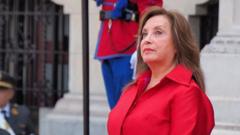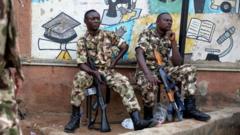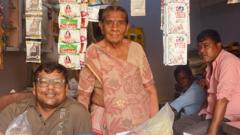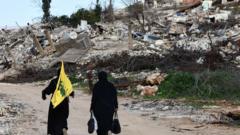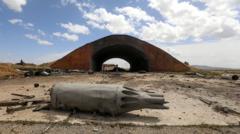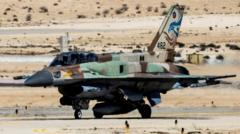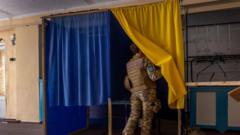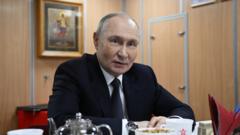The interim government in Syria is insisting on the disarmament and integration of the Kurdish-led militia known as the Syrian Democratic Forces (SDF), which has historically partnered with the United States in combating the Islamic State. As the leadership seeks to establish a caretaker government, they have set the surrender of arms as a prerequisite for participation in national discussions aimed at forming a transitional administration and organizing future elections.
Escalating Tensions in Syria: New Government Calls for Disarmament of Kurdish Forces

Escalating Tensions in Syria: New Government Calls for Disarmament of Kurdish Forces
A demand for the disarmament of the Kurdish-led Syrian Democratic Forces is at the center of rising tensions as the new interim government pushes for national military unification.
This ongoing dialogue regarding Syria's political landscape will be shaped at an upcoming conference which, as of yet, lacks a confirmed date. Hassan al-Daghim, the head of the committee appointed to oversee this dialogue, emphasized the necessity for armed groups to relinquish their arms and submit to the Ministry of Defense for their inclusion in the governmental framework. The new regime considers this disarmament to be a pivotal requirement for the transitioning process.
However, this assertion raises concerns about the potential exclusion of the SDF and the largely Kurdish autonomous region they govern in northeastern Syria from the national dialogue. Despite the fall of the Assad regime in December, the SDF has historically resisted calls to disarm, maintaining their weapons as a protective measure against the lingering threats from both the Assad government and the Islamic State, which despite its territorial defeat in 2019 still poses a significant threat in the region.
The international community, particularly Western nations, continues to view the stability of the SDF and ongoing security challenges from ISIS as pressing issues that need addressing amid the evolving political atmosphere in Syria.
However, this assertion raises concerns about the potential exclusion of the SDF and the largely Kurdish autonomous region they govern in northeastern Syria from the national dialogue. Despite the fall of the Assad regime in December, the SDF has historically resisted calls to disarm, maintaining their weapons as a protective measure against the lingering threats from both the Assad government and the Islamic State, which despite its territorial defeat in 2019 still poses a significant threat in the region.
The international community, particularly Western nations, continues to view the stability of the SDF and ongoing security challenges from ISIS as pressing issues that need addressing amid the evolving political atmosphere in Syria.

